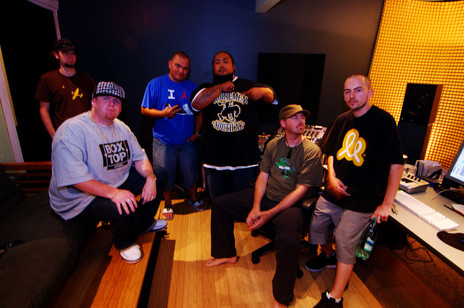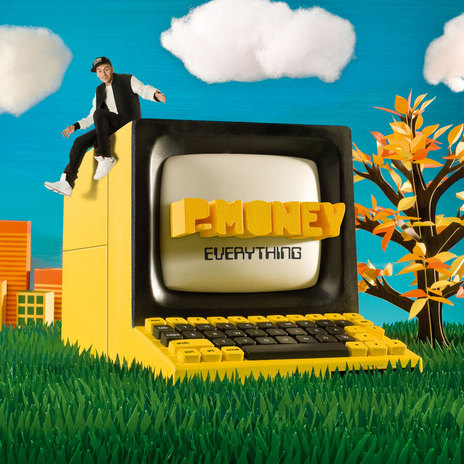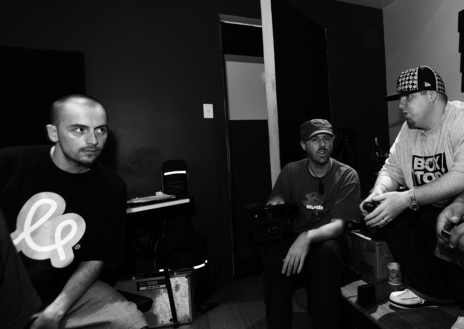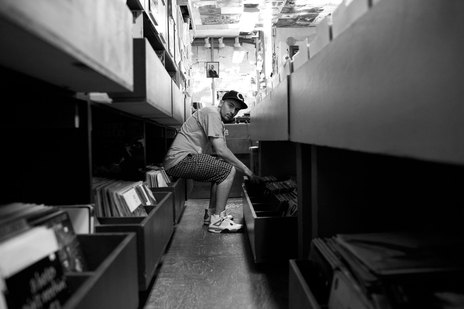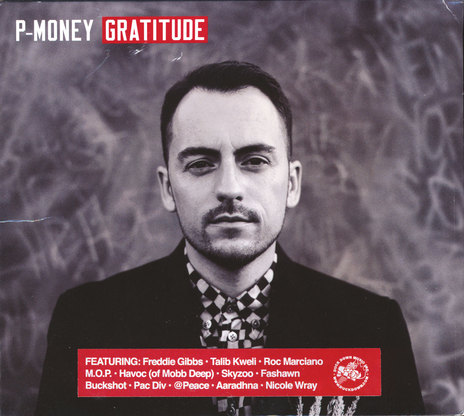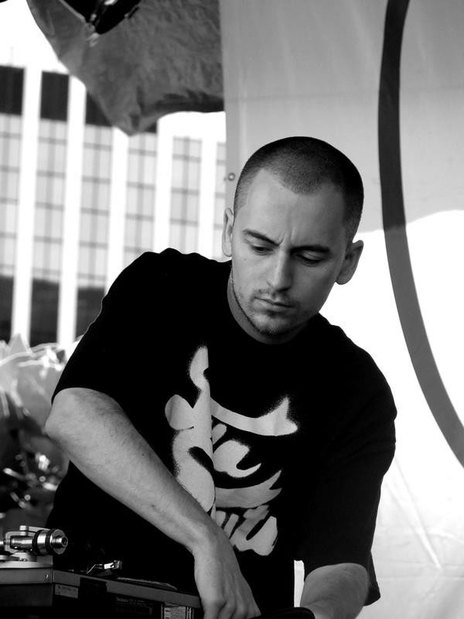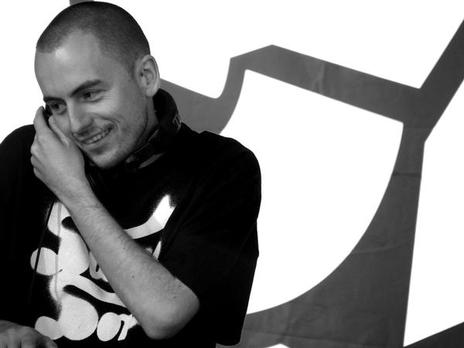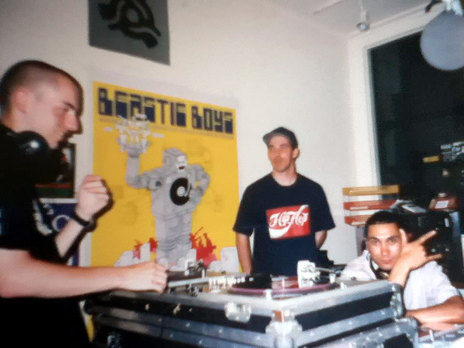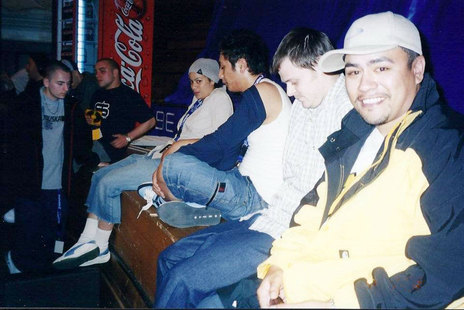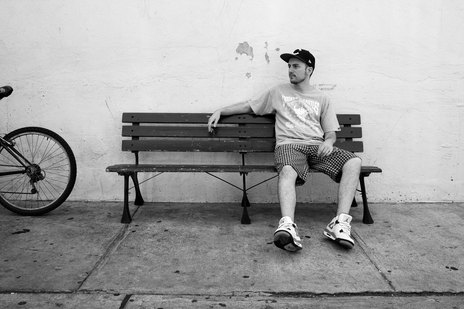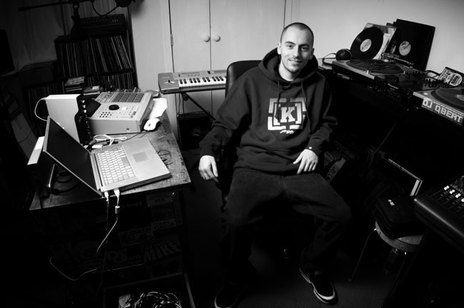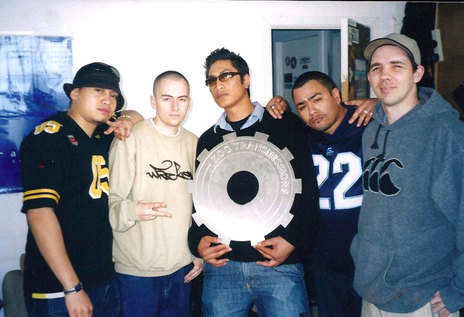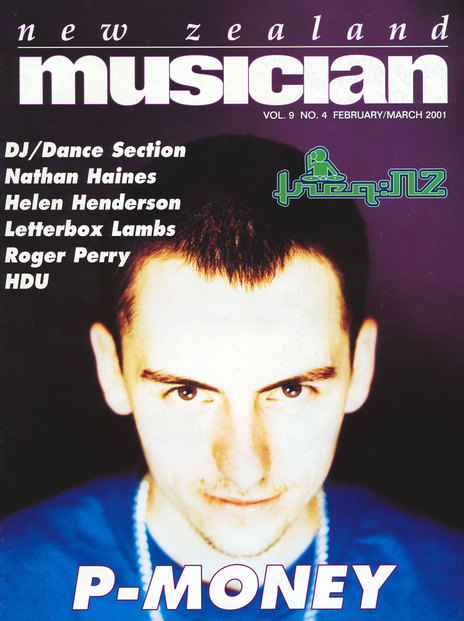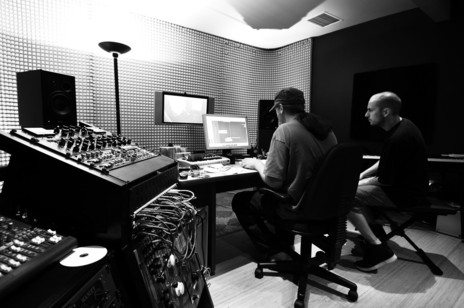As a kid growing up in Papakura in South Auckland, rap music dominated the musical landscape, and Wadams was reared on era-defining late 1980s and early 1990s releases from Run-DMC, Public Enemy, NWA and Geto Boys. Hip-hop magazines Rap Masters, Rap Sheet and The Source also provided reference material, but it wasn’t until he got his hands on his first turntable, coupled with a cassette deck and a $100 mixer, that his hip-hop adventures began in earnest.
“I loved the sound of scratching, and DJing really captured my imagination,” he says. “It was the coolest sound I’d ever heard. I’d try and drag the thing back and forth and make these sounds I was hearing on rap albums.”
While Wadams' household wasn’t a musical one, his dad was supportive of his endeavours, gifting him a second turntable and a Boss DR-660 drum machine, which he used to bang out his first beats as a 16-year-old.
Wadams quit school in his seventh form year just before he turned 17, unbeknownst to his father. He’d stay at home and work on his music, and by year’s end he amassed a collection of beats, blends and mixtapes.
In 1996 he joined forces with a group of local hip-hop hopefuls to enter an Urban Pacifica-organised talent quest at The Powerstation dubbed the R&B Summit. Wadams DJ-ed for the newly-formed group as they rhymed over some of his original beats, transferred to tape courtesy of a DAT machine loaned by Phil Fuemana. The summit was also where Wadams first met Andy Murnane, who went on to form Dawn Raid Entertainment with Danny “Brotha D” Leaoasavaii.
Never shy about asking questions or seeking mentors, Wadams called Stinky Jim on air as a 12-year-old to ask him what kind of turntable a DJ used.
Auckland radio station 95bFM was crucial listening for the budding DJ, with on-air talent like Nick D’Angelo and Dubhead plus Murray Cammick’s Land of the Good Groove and Stinky Jim’s Stinky Grooves plugging him in to new music. Never shy about asking questions or seeking mentors, Wadams called Stinky Jim on air as a 12-year-old to ask him what kind of turntable a DJ used – Jim naturally put him on to Technics SL-1200s.
As a frequent caller who’d dial bFM “just to hear my voice on the radio”, as he describes it, some of the bFM roster became aware of this precocious new talent. And when bFM’s Trueschool Hip Hop Show announced a DJ competition, Wadams recognised this as his opportunity to meet hosts DLT (who would re-christen him “Money” – Wadams added the “P”), Otis Frizzell, Mark “Slave” Williams (MC OJ and Rhythm Slave) and Philip “DJ Sir-Vere” Bell.
“I would take the bus and turn up to bFM and just hang outside,” he says. “I’d see Slave and say, ‘Can I come in and observe?’ Everyone was really open. It would be weird and I’d feel uncomfortable, but I wanted to do it so much that I would just hit them up out of the blue and be like, ‘Listen to my tape, I’m a DJ – check me out’. Eventually they gave me the benefit of the doubt, or they just liked my tenacity.”
The Trueschool DJs eventually let him take charge of the turntables during bathroom breaks, and it marked the beginning of a long association he had with the show.
When P-Money travelled to the inaugural Aotearoa Hip-Hop Summit in Christchurch to showcase his skills in 2000, he already had three DJ battles, including two wins, under his belt. He travelled with Sir-Vere, who was now a friend and mentor. The summit presented the opportunity to re-connect with local artists like DJ Ali, DJ Pause, Ladi6 and Voodoo (of Sheelahroc) that he’d met on previous visits to the South Island.
It also introduced him to a young MC called Scribe, with whom he’d go on to pen a significant chapter in New Zealand hip-hop. P-Money and Scribe first partnered on the track ‘Sunshine’, recorded at Christchurch’s RDU in 2000. The song won an award at the 2000 bNet Awards (where P-Money also took out the Best Turntablist prize) and set the tone for what would become an important songwriting partnership.
The P-Money production credit appeared on four tracks on Che Fu’s landmark 2001 album Navigator, but it was the arrival of his solo debut Big Things in 2002 that accelerated Wadams’ career. Certified gold by the end of the year (and platinum two years later), it also introduced the wider world to Scribe.
“In most cases I’ve been the guy to organise and complete projects throughout all the different phases in my career, so I was like, ‘Dude, we should record some of your raps’," he says. “I don’t know if me and Scribe became best buddies at that time, but we had mutual admiration and respect for each other’s talents. He could identify me as the best young DJ and he was clearly the best MC of our generation, if not all time."
“I knew he was the voice that was going to be on all my songs for Big Things – he was my favourite. I brought him to Auckland and I said, ‘Dude, I need you to do some songs for my album’. He’d written a couple of things specifically for me and was happy to do two or three tracks, but then I was like, ‘What else have you got?’”
p-money and Scribe recorded the vocals for the MC’s solo debut The Crusader in just a week in the Kog studio.
Following a trip to America, P-Money returned to Auckland with plans to work on Scribe’s debut album. With Scribe in Christchurch and difficult to track down, he opted to release an instrumental version of Big Things which included demos recorded Stateside with Aasim, Crud Luv and Crime Fam; remixes from DJ Shan, DJ Ali and Dubious Bros; plus a track with Dubious Bros’ Tyna. Big Things Instrumentals was the third release on Dirty Records, the label P-Money established in 2001 with his business partner, Callum August.
When he eventually made contact with Scribe, they recorded the vocals for the MC’s solo debut The Crusader in just a week in the Kog studio. When Scribe returned to Christchurch, he spent the next three months mixing and arranging the album with Chris Chetland.
“The first day we did ‘Stand Up’ and ‘Not Many’, and I was like, ‘We’ve got some shit here’. He’d been on tour with Sir-Vere, and Scribe was hyped on what was happening in New Zealand hip-hop so he made a song about the movement we were a part of. Little did we know that ‘Stand Up’ would become the anthem for the nation’s feelings about our music.”
The Crusader was released on Dirty on October 16, 2003, with seven of its 12 tracks produced by P-Money, including ‘Stand Up’, which topped the New Zealand charts for 12 weeks as a double A-side single release with ‘Not Many’. The P-Money production credit was on another two top five singles that year, ‘Stop, Drop And Roll’ by Deceptikonz and the second No.1 from Scribe, ‘Dreaming’. Adding to the feat, Wadams received the 2004 Producer of Year Tui award for his work on The Crusader.
“That success was exciting and a little bit scary, in terms of ‘Where does this put me now?’ I was pretty anti-pop music. I’d grown up listening to underground, alternative hip-hop, and now we were on the pop charts. I went from being this weird kid that nobody paid attention to and trying to make contact with people, to what seemed like the whole world – my whole world – looking at me.”
The sequel to Big Things was released in 2004. Magic City drew from a pool of international artists including Akon, Sauce Money and Roc Raida, as well as label-mates Scribe, PNC and David Dallas. The album was announced by the single ‘Stop The Music’ (featuring Scribe) which was a trans-Tasman smash (No.1 in New Zealand and No.7 in Australia), earning Wadams the Best Hip-hop/Urban Album and Best Male Solo Artist Tuis at the 2005 New Zealand Music Awards, and went on to be certified double platinum.
In 2007, Wadams released Unreleased Joints & Remixes, a compilation of demos and rare cuts from his archives, including remixes of Dave Dobbyn’s ‘Oughta Be In Love’ and Che Fu’s ‘Chains’.
Rhymebook, the 2007 follow-up to The Crusader, didn’t feature any of the beats P-Money presented for the project, with Scribe opting for contributions from Fire & Ice, 10Aciouss, Twice As Nice and others. Nevertheless, as a Dirty release, Wadams was tasked with seeing through the delivery of the long overdue album.
“Scribe had a lot of pressure on him to follow up The Crusader and I didn’t understand all the emotions that were going through him,” he reflects. “And I still don’t understand why he didn’t use any of the beats that I got to him. If my best mate and collaborator doesn’t want my music, then maybe my music’s shit – I’m going to do something else...”
Wadams changed direction, digging into his house and club influences with the 2008 single ‘Everything’.
Increasingly frustrated by what he regarded as a stagnant US hip-hop scene, Wadams changed direction in the late 2000s, digging into his house and club influences with the 2008 single ‘Everything’. The track featured R&B vocalist Vince Harder, who sang the rapped chorus that was originally sketched by PNC. It hit No.1 in New Zealand in October of 2008, P-Money’s second solo No.1 after ‘Stop The Music’. ‘Everything’ achieved significant radio play in the UK after he emailed the track to BBC Radio 1’s Zane Lowe.
The sequel ‘Angels’ took the house sound even further, but failed to enter the Top 40. The 2010 Everything album likewise failed to chart, perhaps confusing a large part of his core audience with its mix of R&B, dance and rock alongside hip-hop flavoured material.
Wadams followed this release with another sidestep into house and disco on The Disco 3 digital EP, a collaboration with George FM’s Dan Aux, which was signed to respected French house label Kitsune and released in October 2011, then returned to his roots as a sample-based beatmaker on 2013’s Gratitude, his first album on respected New York hip-hop label Duck Down Music, also home to David Dallas.
“I was still making sample-based hip-hop music behind the scenes, and last year I just thought, ‘Who cares about making a hit. I’m just going to make the shit that I like.’ Partly what inspired me was what David did with The Rose Tint, just doing his brand of hip-hop and not really being concerned with the predominant sound of what was on the radio.”
Gratitude enlisted the talents of veterans such as Buckshot, Talib Kweli and Mobb Deep’s Havoc, freshmen Skyzoo and Pac Div, plus locals Aaradhna and @Peace. Its assured funk and soul-sampling sound threw back to his love of classic 1990s East Coast hip-hop production and attracted the attention of influential hip-hop websites.
“When I think about this latest album, I realise that I’m living out my teenage high school dreams of like, ‘Man, I want to make music with these guys’,” Wadams says. “I had no idea of how – or when – it was going to happen, but if you keep certain things in your mind they eventually become a reality.”
--
Read more: P-Money with Gratitude, 2020
